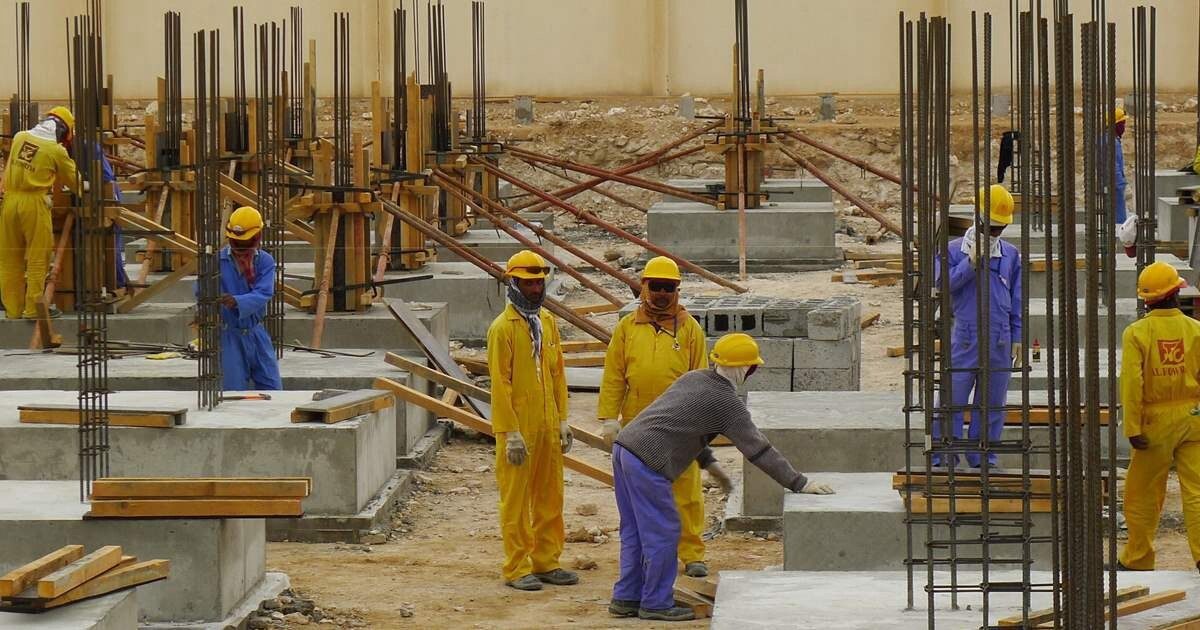Six months after the historic labour laws and regulations were announced, the reforms have finally come into effect in Qatar.
Qatar’s minimum wage and new labour laws came into force on Saturday, applying to all workers in every sectors, including domestic workers.
In addition to the minimum monthly basic wage of 1,000 Qatari riyals QR (275 USD), the new legislation stipulates that employers must pay allowances of at least QR 300 for food and QAR 500 for housing, should employers not provide workers with these directly.
The new minimum wage has come into effect today, the first of its kind in the Middle East. Visit the Labour Reform page on the GCO website to see the reforms which have been introduced by #Qatar to protect the rights of both employers and workers: https://t.co/kKoOX10PV7 pic.twitter.com/OmHxItxIhP
— مكتب الاتصال الحكومي (@GCOQatar) March 20, 2021
This non-discriminatory minimum wage is the first of its kind in the region.
As part of the move, Qatar is set to enhance the detection of violations of the minimum wage, enacting swifter penalties and further strengthening the capacity of labour inspectors, according to an announcement made by the Government Communications Office (GCO).
Employers who pay their staff less than the minimum wage face one-year in jail and a QR 10,000 fine.
According to the GCO, 5,252 companies with a total of 222,042 workers have already updated their payroll systems since the new minimum wage was announced.
Read also: Qatar ‘dismantles’ its Kafala system and introduces major new labour reforms
These labour reforms also include the dismantling of the controversial “kafala” or sponsorship system, becoming the first country in the region to do so.
Workers are no longer required to obtain an exit permit to leave the country, or a No Objection Certificate (NOC) to request permission from former employers to change jobs.
“Over 100,000 workers have changed jobs since the NOC requirement was removed
six months ago. Thousands of workers have benefited from the removal of NOCs by severing long-term contractual ties and diversifying their skills in Qatar’s labour market,” announced the Qatari government.
The reforms were made through collaboration and comprehensive analysis carried out by the government and the International Labour Organisation (ILO).
“Kafala has been dismantled, no more exit visa, no more NOC or non objection certificate required, free labor market mobility, non-discriminatory minimum wage, the first in the entire region, joint committees, democratic elections at the enterprise level workers picking their representatives,” said former senior ILO official Houtan Homayounpour in an exclusive interview to Doha News.
Read also: Qatar says labour reforms ‘far from complete’ following Amnesty ‘Reality Check’ migrant report
The move comes as part of Qatar’s continued efforts to improve labour conditions, promote reforms, and step up its commitments to address global concerns.
A WhatsApp service was also introduced earlier this month to provide information on labour laws and regulation in six different languages.
Earlier this month, Qatar also announced it would open the UN Office for the Coordination of Humanitarian Affairs (OCHA) in its capital.
“Qatar is proud to lead the region on labour reforms. Our advancements are comprehensive and long-lasting, and we are committed to further progress in line with international standards,” said the government.
In a recent exclusive interview with the former head of the ILO’s Qatar office, the senior UN official said Qatar’s journey to reform deserves praise, but more work needs to be done.
“We’ve been very happy to support [the progress in Qatar]. Having said that it is also a fact that the picture is not a rosy picture. There are challenges that still remain. So we look forward to continuing to work with the Qatari authorities and our partners,” Houtan Homayounpour said.
Follow Doha News on Twitter, Instagram, Facebook and Youtube







